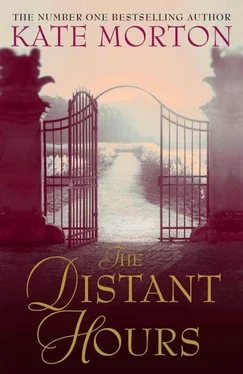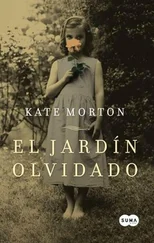I read them all, you see. The night of Sam’s hen party, I took them home and devoured them, one by one, beginning with Mum’s arrival at the castle. I endured with her the freezing early months of 1940, witnessed the Battle of Britain raging above my head, the nights spent shivering in the Anderson shelter. Over the course of eighteen months, the handwriting grew neater, the expression more mature, until finally, in the wee hours, I reached the last letter, the one sent home just before her father came to fetch her back to London. It was dated February 17th, 1941, and read as follows.
Dear Mum and Dad,
I’m sorry that we argued on the telephone. I was so pleased to hear from you both and I feel terrible about the way it ended. I don’t think I explained myself very well at all. What I meant to say is that I understand that you just want the best for me, and I’m grateful, Dad, that you’ve been to speak with Mr Solley on my behalf. I can’t agree, however, that my coming home and finding typing work with him is ‘best’.
Rita is different from me. She hated it here in the country and has always known what she wanted to do and be. For my entire life I’ve felt that there was something wrong with me, that I was ‘other’ in some important way I couldn’t explain; that I couldn’t even understand myself. I love to read books, I love to watch people, I love to capture the things I see and feel by arranging words on paper. Ridiculous, I know! Can you imagine what an odd, black sheep I’ve felt my entire life?
Here, though, I’ve met people who enjoy these things, too; and I realize that there are others who see the world as I do. Saffy believes that when the war ends, which it must do soon, I have a good chance of getting a place at one of the grammar schools, after that – who knows? Perhaps even university?! I must keep up with my schooling though, if I am to stand a chance of transferring to grammar school.
So I beg you – please don’t make me come home! The Blythes are happy for me to stay and you know that I’m well cared for here. You haven’t ‘lost’ me, Mum; I wish you wouldn’t put it like that. I’m your daughter – you couldn’t lose me if you tried. Please, though, please let me stay.
With much love and heaps of hope,
Your daughter, Meredith
I dreamed of Milderhurst that night. I was a girl again, dressed in a school uniform I didn’t recognize, and standing at the tall iron gates at the bottom of the driveway. They were locked and far too high to scale; so high that when I looked up at where their tops should be they seemed to disappear into the swirling clouds above. I tried to climb them but my feet kept slipping, they’d gone all jelly-like, the way they often do in dreams: the iron was icy beneath my hands, yet I was filled with a deep longing, a fierce desire to know what lay beyond.
I looked down and saw that a large key, rusting around the edges, lay across my palm. Next thing I knew, I was beyond the gates and sitting in a carriage on the other side. In a scene borrowed directly from the Mud Man , I was being drawn up the long and winding drive, past the dark and shivering woods, across the bridges, until finally the castle loomed above me at the top of the hill.
And then, somehow, I was inside. The whole place felt abandoned. Dust coated the corridor floors, the paintings hung crooked on the walls, the curtains had all faded, but it was more than just the way it looked. The air was stale, cloying, and I felt as if I’d been locked within a box inside a dark and musty attic.
A noise then, a whispery, rustling sound, and the merest suggestion of movement. At the end of the hall was Juniper, dressed in the same silky dress she’d been wearing when I visited the castle. I was aware of a strange sense within me, the dream’s pervasive mood of profound and troubled longing. I knew, although she didn’t say a word, that this was October 1941 and she was waiting for Thomas Cavill to arrive. A door appeared behind her, the entrance to the good parlour. There was music, a tune I felt I knew.
I followed her into the room where a table had been set. The room was thick with anticipation, and I drifted around the table, counting the places, knowing, though I’m not sure how, that one was set for me and another for my mum. Juniper was saying something then, that is, her lips were moving but I couldn’t make out any words.
Then, suddenly, I was at the parlour window, only, in a strange dream twist of logic, it was my mother’s kitchen window too, and I was staring at the glass pane. I looked outside and it was stormy and I realized there was a glistening, black moat. Movement and a dark figure began to emerge; my heart struck like a bell. I knew it was the Mud Man and I was frozen where I stood. My feet had become one with the floor, but just when I was about to scream, my fear suddenly disappeared. I was filled instead with a flood of yearning and sorrow and, quite unexpectedly, desire.
I woke with a start, catching my dream in the process of dissolving. Tattered fancies hung like ghosts in the room’s corners and I lay very still for a time, willing them not to dissipate. It seemed to me that even the slightest movement, the merest hint of morning sunlight, would burn the imprints off like fog. And I didn’t want to lose them yet. The dream had been so vivid, the heaviness of longing so real that when I pressed my hand against my chest I half-expected to find the skin bruised. After a time, the sun rose high enough to slide across the rooftop of Singer & Sons and pry through the gaps in my curtains and the dream’s spell was broken. I sat up with a sigh and noticed Gran’s shoebox on the end of the bed. At the sight of all those envelopes addressed to Elephant and Castle, details of the night before came rushing back and I was hit by the sudden, clear-light-of-day guilt of someone who’d glutted on a feast of fat and sugar and someone else’s secrets. No matter how glad I was to have acquired the voice, the pictures, the small sense of my mum, and no matter how convincing my justifications (the letters were written long ago; they were intended for an audience; she’d never have to know), I couldn’t erase the expression on Rita’s face as she’d given me the box and told me to have a good old read; the hint of triumph, as if we two shared a secret now, a bond, a connection that excluded her sister. The warm feeling of holding the little girl’s hand had gone, leaving only the sneak’s remorse in its place.
I would have to confess my crime, that much was certain, but I made a deal with myself. If I managed to leave the house without running into Mum, I could have a day’s grace to consider how best to do it. On the other hand, if I ran into her before I reached the door, I would confess all, then and there. I dressed quickly and quietly, took stealthy care of all additional grooming needs, rescued my tote from the lounge – all was going brilliantly until I reached the kitchen. Mum was standing by the kettle, robe fastened around her middle, a little higher than it should be, giving her an odd snowman-like shape.
‘Morning, Edie,’ she said, glancing over her shoulder.
Too late to backtrack. ‘Morning, Mum.’
‘Sleep well?’
‘Yes, thanks.’
I was rustling up an excuse for skipping breakfast when she put a cup of tea on the table in front of me and said, ‘And how was Samantha’s party?’
‘Colourful. Noisy.’ I gave her a quick smile. ‘You know Sam.’
‘I didn’t hear you come in last night. I left you some supper.’
‘Oh…’
‘I wasn’t sure, but I see you didn’t-’
‘I was pretty tired-’
‘Of course.’
Oh, but I felt like a heel! And the unfortunate pudding effect of Mum’s robe made her seem more vulnerable than ever, which made me feel even worse. I sat where she’d put the tea, drew a decisive breath and said, ‘Mum, there’s something I need to-’
Читать дальше












